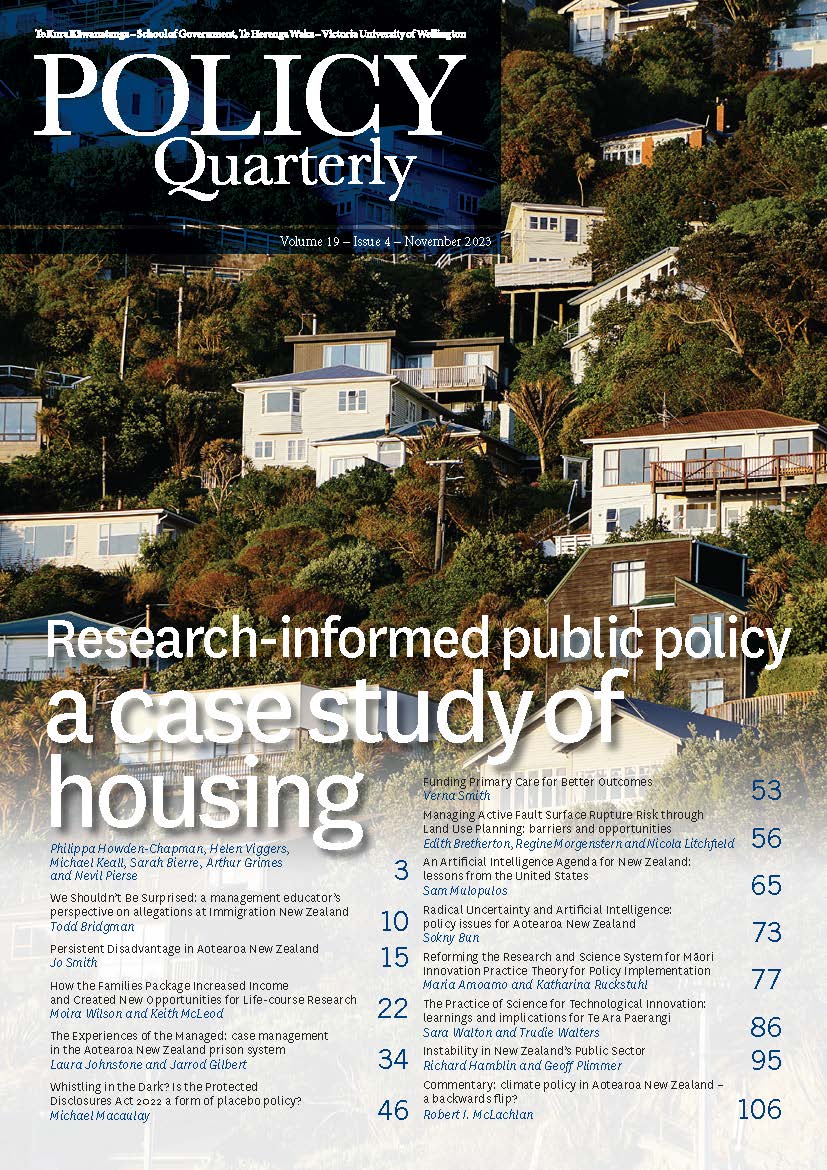How the Families Package Increased Income and Created New Opportunities for Life-course Research
DOI:
https://doi.org/10.26686/pq.v19i4.8652Keywords:
Cash transfers, Paid parental leave, Child wellbeing, Labour supply, Baby bonus, Family tax creditAbstract
The Aotearoa New Zealand government’s 2018 Families Package increased financial assistance for families as part of a strategy to reduce child poverty, improve child and youth wellbeing, and provide parents with more choice around working and caring in their children’s first three years of life. Mothers who had children born after implementation of the package qualified for substantially more financial assistance in the pre-natal period and in their children’s first three years than previous cohorts. This article examines the size of the income gains. Using linked administrative data, we estimate that by the time children turned three, having a birth on or after 1 July 2018 increased financial assistance received by mothers by almost $6,800 on average when compared to pre-reform cohorts (a 5% increase in total income). For Mäori mothers, the average increase was almost $9,600 (a 7% increase in total income). This natural experiment offers new opportunities for research on the causal effects of increased financial assistance in children’s early years on life-course outcomes.
Downloads
Downloads
Published
Issue
Section
License
Permission: In the interest of promoting debate and wider dissemination, the IGPS encourages use of all or part of the articles appearing in PQ, where there is no element of commercial gain. Appropriate acknowledgement of both author and source should be made in all cases. Please direct requests for permission to reprint articles from this publication to Policy-Quarterly@vuw.ac.nz.



